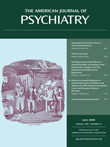If, as it has been said, love is the gift of oneself, then Dr. Person has given much of herself indeed. A affiliationd psychoanalyst, whose extensive writings in the fields of gender, sexuality, and erotic attachment were published together in The Sexual Century (1999), Dr. Person now offers a reissue of her 1988 work, Dreams of Love and Fateful Encounters . This is a great book, one that puts a rich understanding of the narratives of love that lead so many patients to our doors into clear and accessible language, unburdened by psychiatric jargon.
Dr. Person writes in her introduction, “love has been one of the most profound interests of my life since I was no more than twelve.” While I suspect she is not alone in this, I soon join her, curled up on the couch in pleasure, as she weaves an abundance of classic love stories from film and fiction into her illustrations of the dynamics of love. Her book is organized in five sections, describing in sequence the experience, aims, struggles, gender differences, and fates of love. This is a panoramic description of human love; it takes our clichés and explains them, moving skillfully from easily recognized types of love, such as love that develops on the rebound or with separation, to offering multiple clinical and theoretical windows into such phenomena.
Dr. Person takes particular care to describe the liberating, transcending, and creative aspects of love, giving inspiring examples of relationships that allowed the participants to triumph over psychic limitations and pain. Yet, she in no way minimizes the problems clinicians and subjects face in dealing with love, including the risks of merging, submission, and the hostility that lies below its surface. Her chapter on self-surrender is particularly strong, especially in its insightful discussion of the type of surrender to love which enhances the self, versus the type which masochistically degrades it, and the dynamics of autonomy, dependency, and narcissism which underlie neurotic problems of this type. These dynamics lead her naturally into a chapter on the power in love. Here she covers the precariousness and the subtle but inevitable teeter-totter of power that exists in seduction, possession, idealization, caretaking, and other elements of the love relationship. She also helps the reader to see how traces of guilt, coercion, sadism, and contempt can tip these elements towards the pathologic.
In Chapter 9, “Triangles,” the classical Oedipal situation serves as a launching point for an innovative exploration of other triangular arrangements in couples. Distinguishing “rivalrous triangles,” in which one competes for the lover, from “split object triangles,” in which one divides one’s attention between two love objects, Dr. Person deftly shows how defensive moves such as arranging to be desired by two rivals rather than competing with a rival for another can be seen in our love stories. Chapter 11, entitled “Modes of Self-Realization,” also provides a wealth of innovative psychoanalytic ideas, many departing from classical theory, to help the reader understand such commonalities as a woman’s relatively greater fear of rejection in love. Here the clinical reader will be particularly helped by insights into possible patient dynamics.
Reprinted essentially without modification, this is not the right book for those seeking a contemporary update in gender studies or biological research on sexuality. A few statements, such as “the quest for an ideal love relationship...is the only quest readily available to most women except for motherhood,” may seem anachronistic to the modern reader. But, as a clinician who struggled alongside her female patients as their desires for a committed relationship were met by male flight, despite advances in feminism, and as someone who recognizes with Dr. Person the importance of “the passionate quest as…the central theme of our lives,” I know of no more encyclopedic or enriching entry into this field.

